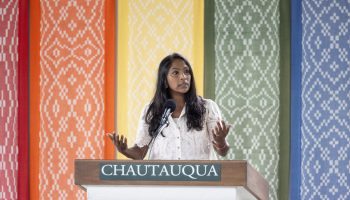Azerbaijan may not sound familiar to some of you. It is a relatively small country, sandwiched between Russia, Iran, Caspian Sea to its east, Georgia, and Armenia to its the west. The ruling government’s interest in having the country recognized on an international level is measured by how much it invests in lobbying, international advertisements, and even hosting mega sporting events such as Formula 1 race, as opposed to being a pioneer of new scientific discoveries, marking new benchmarks in transparency or maintaining a record of equal rights and freedoms.
Instead, the name of the country adorns the official uniforms of Atlético Madrid as the “Land of Fire,” which the country is known for thanks to its zoroastrian roots. This is not because of a grand vision the leadership has but because if there is one thing the ruling Baku knows how to do well, it is how to launder money through sponsorships, illegal business ownerships, offshore companies and more.
Sadly, beneath all the beautiful green mountains, endless forests, lakes, waterfalls and historical monuments, the country’s colorful culture and, most importantly, Azerbaijan’s abundant hospitality, lies a land of great repression and lies. And while the streets of downtown Baku sport high-end boutique shops, beyond the glitz and glamour the land of fire has been consumed by corruption, inequality, and has become a prison of silence and fear.
The family
In 2013, The Atlantic ran a piece about Azerbaijan titled, “How Azerbaijan is like ‘The Godfather.’ ” The author, Michael Weiss, described in detail how Azerbaijan’s ruling family managed to secure control over every major stake in the economy over the years of leadership. The family developed a system where energy reserves shaped the regime’s policies while democratic norms and procedures played no role in moving the country forward. Azerbaijan’s Corleones succeeded well in securing abundant wealth for itself, while neglecting the country’s population. The vision of growing and developed Azerbaijan was limited to grand construction projects and building an international image, while health, education, and other social sectors in desperate need of reforms and investment were left on their own. How we got here?
To understand the fraudulent system of favoritism, family ties, and ventures of Aliyev family, we ought to go back to 1993, just two years after Azerbaijan declared its independence from the Soviet Union, suddenly finding itself in a challenging position — economy in shambles, domestic political chaos, and an ethnic war with Armenia over the territory of Nagorno Karabakh. It was in 1993 when former KGB chief turned Communist leader Heydar Aliyev won the presidential seat in a referendum, ousting previously democratically elected Abulfaz Elchibey.
A year into his presidency, Heydar Aliyev signed what was described as “Contract of the Century,” a production-sharing agreement with a consortium of Western oil companies to tap deepwater oilfields of Guneshli, Chirag and Azeri. It was meant to change Azerbaijan and build a country with potential for vast economic growth, new jobs, foreign investments, international partnerships and a Western presence. One other important element of the contract was for Azerbaijan to grow independently of Russia’s sphere of influence, resisting the pressure from the Russian authorities to build the pipelines through Moscow-controlled territories.
But the hope of a greater, modern, and more democratic Azerbaijan was short lived. Somewhere between the signing of the contract, the implementation and the plans to lay the foundation for lasting economic development, Azerbaijani leadership fell victim to the “resource curse” or “paradox of plenty.” The “resource curse” is a condition in which negative economic and political outcomes, combined with misguided interests, prevail when there is an absence of strong domestic institutions and a system of checks and balances. The power establishment was interested in acquiring revenue, and democracy was secondary, if not never on the government books, to implement. Very quickly, Azerbaijan was branded “one of the most corrupt countries in the world,” where millionaires and family members were appointed to influential posts, solidifying the rule of the Aliyev clan.
Heydar Aliyev ruled Azerbaijan until 2003, when he died at the age of 80. He left behind an already highly corrupted state, where power rested in the hands of the few. Both constitution and legislation were amended to serve the purpose of further consolidating power of one family and its affiliates. Presidential powers were expanded and anyone who attempted at challenging the regime faced persecution. One important change to the constitution gave the prime minister the power to act as interim president. When Heydar Aliyev bid farewell to this world, his son was appointed the prime minister. As a result, it won’t take much time to guess who replaced the senior Aliyev after his death in 2003.
The junior Aliyev took the seat of the presidency in October, after securing a win with over 75 percent of the vote. One of the main international observers, the Office for Democratic Institutions and Human Rights within the Organization for Security and Co-operation in Europe mission, concluded in its report that the elections “failed to meet OSCE commitments and other international standards for democratic elections.” Elections were marred with intimidation of candidates, flawed counting and tabulations, biased state media — setting the tone for the following elections. In fact, Azerbaijanis are yet to have an independent, free, and fair election. In the meantime, at home, each election is applauded and praised by local representatives of the government.
The wealth and the crackdown
While elections failed to meet the international standards, Azerbaijan’s Corleones acquired more wealth, and corruption thrived. In 2009, term limits for presidents were abolished, which made it possible for Ilham Aliyev to get re-elected. He has gotten so comfortable at his position, that he never even bothered to appear at pre-election debates. At the same time presidential term limits were removed, authorities decided on behalf of its people that they did not need to hear news and took the BBC, Radio Free Europe/Radio Liberty’s Azerbaijani Service, and Voice of America off the FM radio waves. Today, Azerbaijan lacks any social structures that can hold the government accountable.
Today, thanks to the brave work of investigative journalists at home and abroad, we know that Ilham Aliyev’s son, Heydar Aliyev (and the likely successor to his father), owned $44 million of real estate in Dubai at the age of 11. Together with his sisters Arzu and Leyla Aliyeva, the Corleone children own $75 million worth of property in just Dubai. In addition the two sisters hold stakes in an Azerbaijani telecom company. The family has stakes in banks, real estate companies, and are known to have shares in offshore companies, much of which was exposed in Panama Papers leaks.
Much of Azerbaijan’s civil society has been demolished. The authorities have eliminated media pluralism. Independent and opposition media platforms have been shut down, blocked or throttled financially. Journalists, bloggers, and human rights activists are behind bars. According to most recent reports there are some 140 political prisoners in Azerbaijan on trumped up-charges. In 2017, the Reporters Without Borders 2017 World Press Freedom Index ranked Azerbaijan 162nd out of 180 countries. Its ranking on indexes and reports of other internationally known human rights and press freedom watchdogs is not much better. And yet its leadership has done nothing to improve its position. Instead, its officials continue to argue the country is doing well and that those who claim otherwise are simply jealous enemies, whose sole purpose is to belittle and humiliate the nation.
And in the battle of who is right and who is wrong, it is the people of Azerbaijan who are forced to live in a prison called the Land of Fire, where silence and fear have become an everyday norm.
Arzu Geybulla is an Azerbaijani columnist and journalist, with special focus in human rights and press freedom in Azerbaijan. She has written for numerous platforms and institutions, and recently served as a visiting fellow in the Central Asia-Azerbaijan Fellowship at George Washington University.





